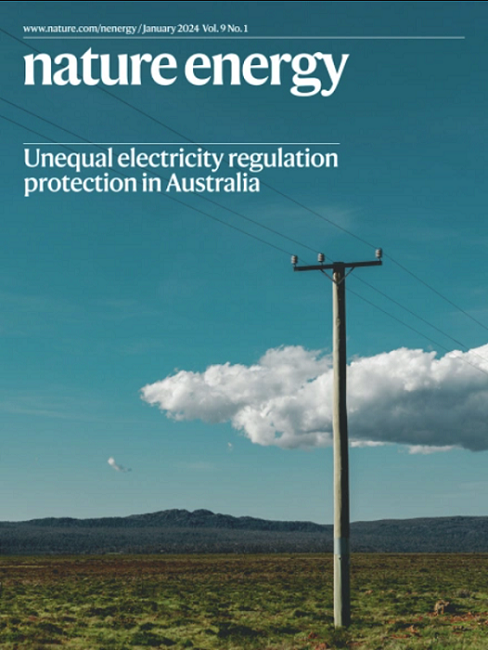Renewable energy cooperatives
IF 60.1
1区 材料科学
Q1 ENERGY & FUELS
引用次数: 0
可再生能源合作社
未能考虑到受影响社区的担忧的可再生能源项目有可能降低公众的接受度和批评。因此,参与这些项目的方法越来越受到关注。可再生能源合作社(REScoops)是让当地公民参与项目开发和决策的一种方式。尽管这类项目越来越受欢迎,但相对而言,人们对REScoops在实施项目所需的时间和整个过程中提出的诉求方面的表现知之甚少。现在,来自代尔夫特理工大学和特温特大学的Bas browwer, Rutger van Bergem及其同事分享了对荷兰14个REScoop陆上风能项目的见解。采用混合方法比较REScoop和商业主导的项目,研究团队从探索性访谈中得出结论,并进行了内部和跨案例分析,包括过程跟踪、编码、数据集开发和统计分析。研究小组发现,与商业主导的项目相比,REScoop项目更好地结合了地方参与、信息共享和早期参与,并采取了更具集体性和包容性的决策方法。这些项目还通过强调对当地人的经济补偿,促进了更多的社区参与。规划和开发过程更快,投诉也更少。这项工作的结果表明,社区主导的倡议可能是商业主导的陆上风电项目的可行和有竞争力的替代方案。
本文章由计算机程序翻译,如有差异,请以英文原文为准。
求助全文
约1分钟内获得全文
求助全文
来源期刊

Nature Energy
Energy-Energy Engineering and Power Technology
CiteScore
75.10
自引率
1.10%
发文量
193
期刊介绍:
Nature Energy is a monthly, online-only journal committed to showcasing the most impactful research on energy, covering everything from its generation and distribution to the societal implications of energy technologies and policies.
With a focus on exploring all facets of the ongoing energy discourse, Nature Energy delves into topics such as energy generation, storage, distribution, management, and the societal impacts of energy technologies and policies. Emphasizing studies that push the boundaries of knowledge and contribute to the development of next-generation solutions, the journal serves as a platform for the exchange of ideas among stakeholders at the forefront of the energy sector.
Maintaining the hallmark standards of the Nature brand, Nature Energy boasts a dedicated team of professional editors, a rigorous peer-review process, meticulous copy-editing and production, rapid publication times, and editorial independence.
In addition to original research articles, Nature Energy also publishes a range of content types, including Comments, Perspectives, Reviews, News & Views, Features, and Correspondence, covering a diverse array of disciplines relevant to the field of energy.
 求助内容:
求助内容: 应助结果提醒方式:
应助结果提醒方式:


